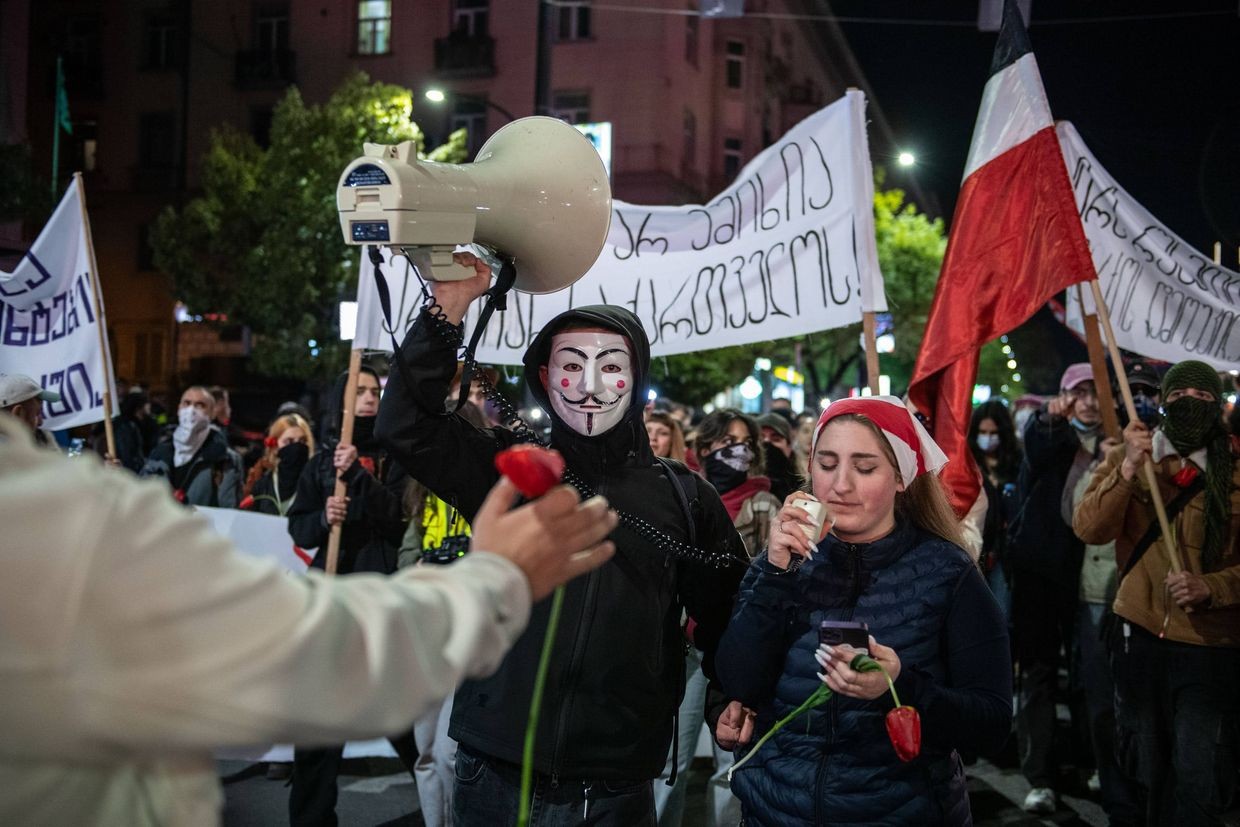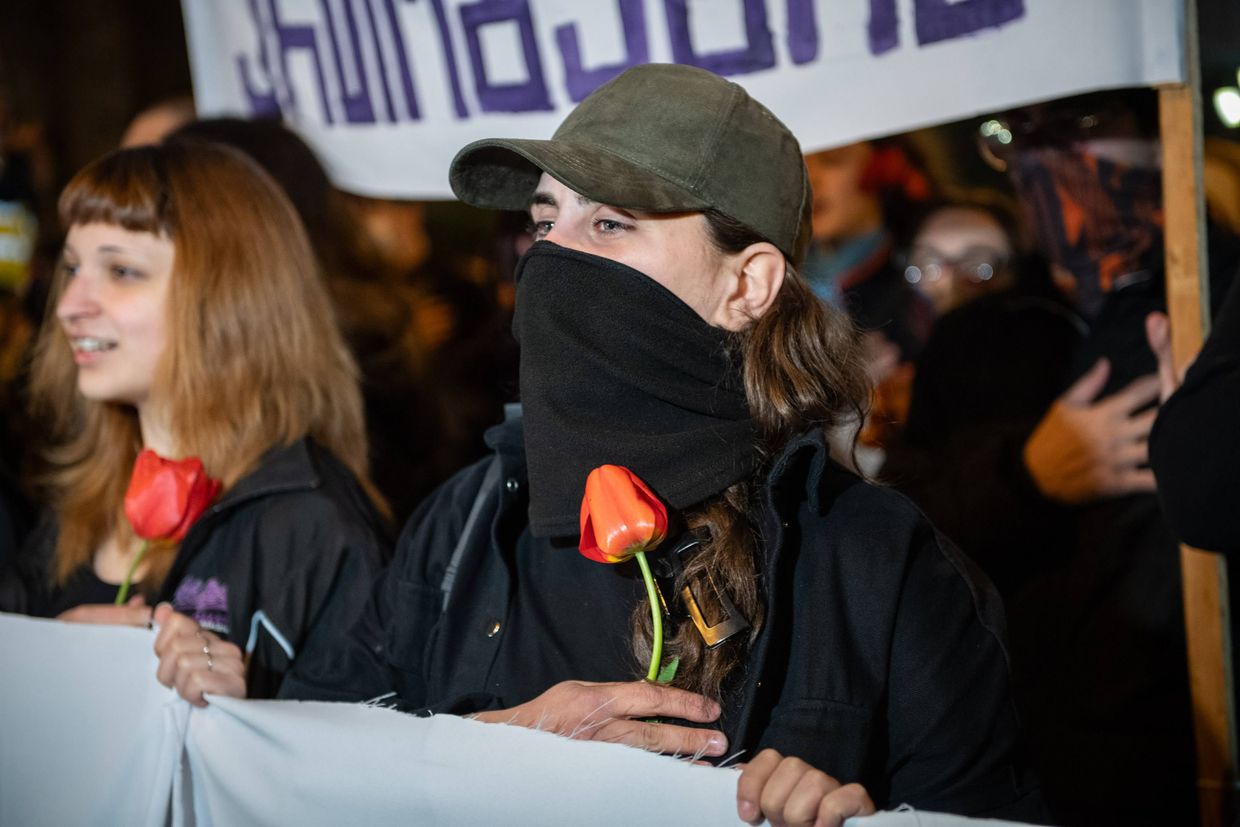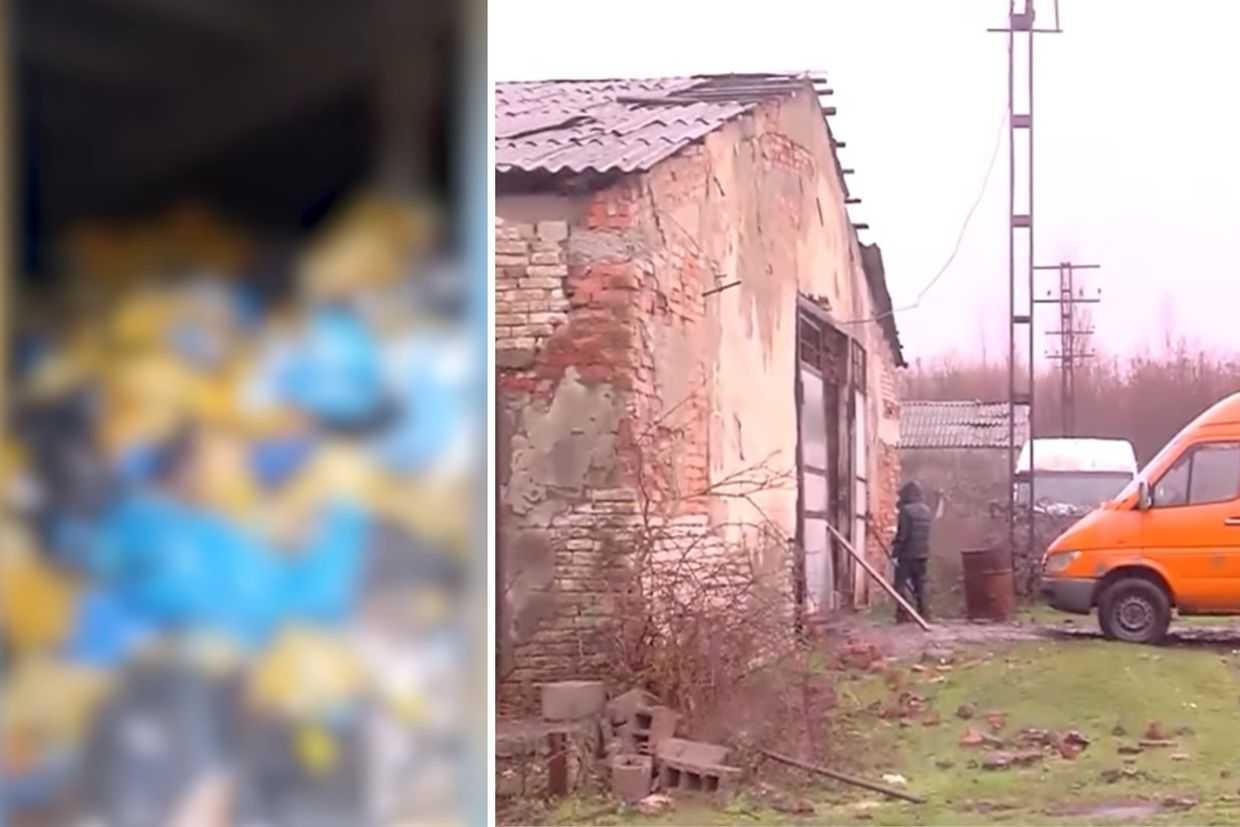
On Wednesday, the 132nd day of anti-government protests, several marches took place in the centre of Tbilisi. Among them was a demonstration in support of independent media and a student march commemorating the 36th anniversary of the brutal crackdown by Soviet troops on pro-independence demonstrators in Tbilisi on 9 April 1989.
Students initially gathered in the courtyard of the main campus of Tbilisi State University (TSU). During speeches, speakers emphasised the sacrifice of those who were killed and injured 36 years ago in the struggle to gain independence from the Soviet Union.
Participants framed the current wave of anti-government and pro-European protests as a continuation of the fight to free Georgia from Russian influence.
‘36 years later, we are once again fighting against Russian imperialism’, 21-year-old Datuna Danelia, a student at the Georgian National University (SEU), told OC Media.

‘Students were at the forefront of that struggle 36 years ago, and they still are today. Those people fought for a free, independent, democratic Georgia—and we continue their struggle’, he added.
Later, the students marched toward the parliament, chanting, ‘Glory to the heroes!’ and ‘The future is ours — we won’t let you take this country from us!’
Twenty-one people were killed and hundreds more injured on 9 April 1989, after Soviet troops moved in on a peaceful independence demonstration at what is now the Georgian parliament, beating people with shovels and releasing an unknown toxic gas in an effort to disperse the protesters.
Two years later, on 9 April 1991, the Supreme Council of the Georgian SSR announced the restoration of Georgia’s independence.
Students in Tbilisi are marching toward the Georgian Parliament, chanting, ‘Glory to heroes’ and ‘The future is ours — we won’t let you take this country from us!’. The march marks 36 years since the brutal crackdown on pro-independence protests by Soviet troops on 9 April 1989. pic.twitter.com/H5yTnV3C5J
— OC Media (@OCMediaorg) April 8, 2025
Alongside protest banners, participants of Wednesday’s student rally held tulips, a symbol of the 9 April massacre.
Media Solidarity March
On the way to the parliament, the students’ march joined forces with the Media Solidarity March, organised by independent online media outlets. The rally was planned in parallel with the ruling Georgian Dream party’s introduction of restrictive laws, which critics say threaten to destroy both the independent press and civil society organisations.
‘Restrictive laws, politically imprisoned journalists, beatings, threats, censorship, and persecution have become the daily reality of Georgian media’, said the organisers, adding that ‘the fight for a free press is not just the responsibility of journalists — its disappearance will affect every citizen’.
Journalists who joined the rally carried posters read ‘Solidarity with the media’ and ‘Defend press freedom’, along with a banner bearing the words of Mzia Amaghlobeli, the currently imprisoned founder of Netgazeti and Batumelebi: ‘Fight while it’s not too late’.

The rally ended in front of the parliament.
Some demonstrators stayed overnight at the scene, expressing solidarity with the families of those arrested during the ongoing anti-government protests. The families had previously announced that they would spend the night of 8 April at the parliament.
The protesters lit candles and placed tulips at the memorial of those massacred on 9 April 1989, which is located near the parliament building.
The current wave of protests first broke out spontaneously on the evening of 28 November, just hours after Prime Minister Irakli Kobakhidze announced the government’s EU U-turn.
The announcement came a month after the Central Election Committee handed the ruling Georgian Dream party victory in parliamentary elections that saw widespread incidents of vote buying and breaches of voter secrecy.
While sporadic protests had taken place following the elections, November’s announcement saw a wave of anger across much of Georgia.

Protesters detained during the protests have reported being systematically beaten by and robbed by police, with testimony from several detainees revealing episodes of extreme violence and intimidation.
Despite the reduction in scale, the protests continue, with demonstrators blocking Rustaveli Avenue, where the Georgian parliament is located, for several hours every evening since November.
The government has imposed hefty fines on many citizens for blocking the road, with some fines reaching tens of thousands of USD. iParallel to the protests, the ruling party continued to rapidly initiate and pass laws against its critics. The most recent bill would impose government approval for receiving foreign grants.









